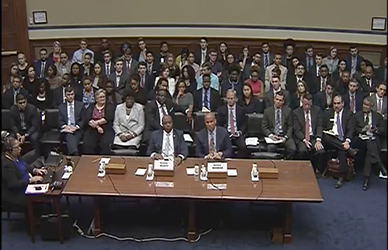PRISON REEnTRY
Removing barriers for returning citizens so that they can successfully rejoin their communities.
PRISONER REENTRY INITIATIVE
WHAT IS IT
With the guidance of experts, GCO has published reports, identified resources and advocated for solutions that will help people returning from prison obtain employment, connect with their families, and rejoin their communities.
Two-thirds of those released from prison will likely have been rearrested within 3 years. This cycle of “recidivism” is what GCO works to address in our communities.
Who Does It Impact
Why It Matters
Not only does Georgia lead the country in the number of people under correctional supervision, but a high percentage of those in poverty have a direct connection to the prison system (either through family or close friends).
RESOURCES FOR RETURNING CITIZENS
BETTER OPPORTUNITY
Work resources and ways to seize opportunities as your return from incarceration.
UNDERSTANDING CIVIL ASSET FORFEITURE
The opportunity for abuse and the lack of accountability is resulting in a system of corruption.
BUSINESS RESOURCES
HIRING RETURNING CITIZENS
How and why businesses can institute second chance programs in their community.
WELFARE CLIFFS
A website for identifying unintended consequences of policy that traps people in welfare.
POLICY SOLUTIONS
Georgia Center for Opportunity’s Prisoner Reentry Initiative began as an attempt to understand the driving force behind Georgia’s high recidivism rate and develop solutions to reduce this number. From July 2013 to June 2014, Georgia Center for Opportunity (GCO) convened monthly meetings of prisoner reentry experts from the nonprofit, government, academic, and private sectors. These meetings focused on identifying barriers to successful prisoner reentry and solutions to remove those barriers.
OUR SOLUTIONS
1. Increasing Employment Opportunities by
- Lifting driver’s license suspensions for those who have not committed a driving-related crime
- Ensuring that every person receives proper identification before being released from prison
- Lifting professional license restrictions for those who have a felony conviction that is unrelated to the profession sought
- Incentivizing employers to hire people reentering society from prison through bonding programs, tax credits or deductions, and liability protection
2. Encouraging returning citizens to repay their debts and pay current obligations by
- Providing offenders the ability to earn and save money while in prison
- Offering incentives such as forgiving a portion of debt owed to the state in exchange for regular payment of child support and restitution
- Reinstating driver’s licenses that were suspended for non-payment of child support
- Creating realistic repayment plans based on returning citizens’ financial situation
- Expanding the Fatherhood Program and Parental Accountability Courts to provide necessary supervision and job assistance for chronic non-payers of child support
3. Promoting reforms to the criminal justice system itself by
- Aligning the recruiting and education of the criminal justice workforce to focus on protecting society and preparing offenders for successful reentry by addressing their underlying needs
- Incorporating concepts of restorative justice into the system to address the needs of the victim, the community, and the offender by promoting healing and restoring relationships
OUTCOMES
Changes in law
- The state passed SB 365 in April 2014 which gives judge’s discretion to not automatically suspend driver’s licenses for drug offenders who committed a non-driving-related offense, as well as protects employers from liability in hiring a person with a criminal record, consistent with recommendations made in GCO’s December 2013 report, Increasing Employment Opportunities for Ex-Offenders.
- The Georgia Legislature passed HB 328 during the 2015 legislative session which provides offenders who have completed a drug court program to be eligible for obtaining professional licensing, consistent with a recommendation from our December 2013 report.
Changes in policy
- In February 2015, Georgia became the first state in the South to officially “ban the box” on applications for state employment through an executive order issued by Governor Deal, a step recommended in our December 2013 report and by numerous advocacy organizations in Georgia.
- Beginning in February 2015, the Division of Child Support Services, superior court judges, probation, and parole have been communicating how to best ensure people involved in the criminal justice system pay child support while receiving the necessary supervision and assistance they need to find a job and make consistent payments once in the community, recommended in our December 2014 report, A High Price to Pay.
- As of July 2015, the state is seeking to expand Parental Accountability Courts to cover all 49 judicial circuits, which has the potential of saving local counties as much as $13 million per year in reduced costs of incarceration. The PAC program provides chronic non-payers of child support the opportunity to overcome barriers to employment and consistently support their children.
That said, we have learned of valuable resources in the metro-Atlanta area which offer services and programs for those returning home from prison. We would like to provide you with a list of some of these organizations. Click on the button below to download the resource list.
Have you considered hiring an ex-offender in Georgia? For businesses who have not yet offered second chance employment, there are often many questions surrounding the benefits and potential risks. This Q&A document, prepared by attorney Dion Kohler, seeks to provide a guide to some of the top questions asked by many employers.
Published in July 2015, this white paper highlights the success that Parental Accountability Courts (PACs) have had in helping chronic non-payers of child support overcome barriers to employment and pay child support regularly, and argues for their expansion in light of the numerous benefits they bring. Already, these courts have saved Georgia counties millions of dollars in reduced costs of incarceration.
Published in December 2014 and revised in May 2015, this report provides solutions that aim to minimize the role debt has in driving recidivism rates. People often leave prison owing tens of thousands of dollars in debt, creating serious obstacles to a successful reentry. The state should take this into consideration and establish realistic payment plans and incentives to encourage returning citizens to pay current obligations and repay debts according to their ability.
This fact sheet provides a snapshot of the issue of mass incarceration and recidivism in the United States and Georgia. It outlines the scope of the issue, provides demographics, displays recidivism trends, and details the cost it is having on society.
Published in July 2013, this report summarizes the current gaps identified within Georgia’s reentry system based upon the available evidence, including official state reports, site visits to prisons and reentry service providers, and over four dozen expert interviews. In spite of these gaps, the report also highlights emerging solutions that Georgia is implementing to reduce offender recidivism across the state, including Residential Substance Abuse Treatment Centers, Specialized Courts and Risk and Needs Assessments
Published in December 2013, this report focuses on ways to improve workforce reentry for ex-offenders in Georgia. GCO offers six recommendations for Georgia to consider implementing and is a product of GCO’s Prisoner Reentry Working Group that is developing solutions for curbing recidivism and improving offenders’ transition back into their community.
BLOGS ON PRISONER REENTRY
His college graduation was delayed by prison. Now a Perry student has a second chance.
Joshua Brown will tell you without much prompting that he served three years in prison for aggravated assault. He’s not proud of it. But he owns it. The Vidalia native, who lives in Perry, said his jail sentence was the result of a series of bad decisions. Two-thirds...
Georgia Center for Opportunity announced as finalist for Atlas Network’s prestigious Templeton Freedom Award
Amid growing acknowledgment for efforts to reduce prison recidivism rates in Georgia, the Georgia Center for Opportunity (GCO) has been named as a finalist for the highly competitive Atlas Network Templeton Freedom Award. The honor recognizes GCO for recent efforts to...
GCO Goes to the Nation’s Capitol
On June 28th, GCO's Eric Cochling traveled to Washington, D.C. to be part of the Full House Committee on Oversight and Government Reform meeting, which took an in-depth look into "programs and legislation aimed at rehabilitating offenders, facilitating a successful...
Criminal Justice Reforms: Increasing Access to Work
On April 27th, Governor Deal signed into law the most recent round of criminal justice reforms in Georgia. Senate Bill 367 enacts many of the recommendations of the state's Council on Criminal Justice Reform. Among the reforms are a number that will improve the...
AEI Event: Improving Prisoner Reentry and Reducing Recidivism
Watch a recording of the event here. Georgia Center for Opportunity was privileged to partner with the American Enterprise Institute (AEI) in co-hosting an event on the issue of prisoner reentry at AEI’s headquarters in Washington, D.C. on Tuesday, July 28th. The...
Won’t You Be My Neighbor?
What Returning Citizens Need to Make Successful Transitions The fundamental building blocks for returning citizens’ successful transition back into society are, ironically, the most challenging for them to secure: steady employment, safe and affordable housing, and...







